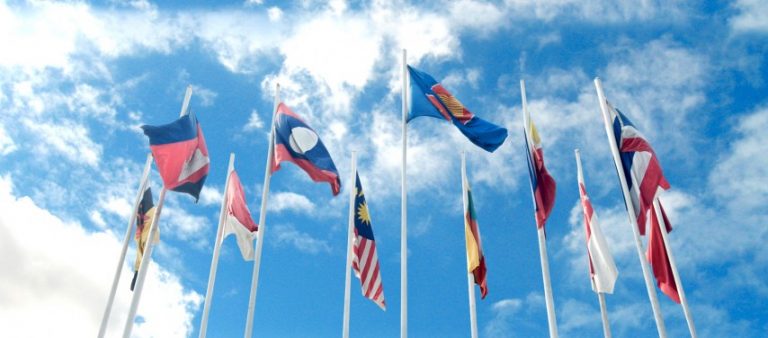Yangon, Myanmar, 18 December 2003: Ministers responsible for environment of ASEAN member countries: Brunei Darussalam, Cambodia, Indonesia, Lao PDR, Malaysia, Myanmar, the Philippines, Singapore, Thailand and Viet Nam, held their 9th ASEAN Ministerial Meeting on the Environment and agreed on several important regional environmental initiatives. The Ministers, recalling Bali Concord II which aims to achieve an ASEAN Community by the year 2020, agreed to contribute actively to that objective through concrete and realistic national and regional environmental strategies and measures.
The Ministers welcomed the entry into force of the ASEAN Agreement on Transboundary Haze Pollution on 25 November 2003, and resolved to further enhance cooperation under the Agreement. The Ministers also endeavored to conclude by 2004 an ASEAN framework agreement on access to, and fair and equitable sharing of benefits arising from the utilisation of biological and genetic resources.
The Ministers signed the revised Declaration on ASEAN Heritage Parks, which now includes all the ten members of ASEAN, and resolved to further enhance cooperation on protected area management through the mechanisms provided by the Declaration. The Ministers adopted the Framework for “Environmentally Sustainable Cities” in ASEAN to address the challenges of environmental sustainability, and the ASEAN Long Term Strategic Plan for Water Resources Management to meet the needs in terms of health, food security, economy, and environment. The Ministers also recognised the need to expeditiously implement the ASEAN Marine Water Quality Criteria. The Ministers further agreed to work towards a plan of action with a definite timeframe to harmonise environmental policies, legislation, regulations, standards and databases, taking into account national circumstances of member countries.
The Ministers also discussed several initiatives to enhance regional capacity to implement environmental programmes. The Ministers agreed to enhance the role of the ASEAN Regional Centre for Biodiversity Conservation by reviewing its management structure and programmes and providing necessary support for the continued sustainability of the Centre. The Ministers acknowledged the importance of promoting environmentally sound technologies for effective environmental management and economic growth through appropriate regional mechanisms.
The Ministers recognised the need for more responsive funding support to implement regional environmental initiatives and agreed to pursue the idea of creating an ASEAN Environment Fund.
The Ministers reiterated their commitment and resolve to fulfill the obligations in the WSSD and to meet the Millennium Development Goals, and called upon the developed countries to fulfill their commitments, particularly in providing financial resources, enhancing capacity building, and promoting technology transfer to developing countries.
The Ministers acknowledged with gratitude the numerous partners who have collaborated with ASEAN in promoting sustainable development initiatives and called upon these and other prospective partners to further enhance their collaboration. The Ministers held consultations with UNCCD, UNDP, UNEP, ADB and Hanns Seidel Foundation. The Ministers will meet on 19 December 2003 with their counterparts from the People’s Republic of China, Japan and the Republic of Korea to discuss environmental matters of mutual interest under the ASEAN +3 Framework.
The Ministers adopted the Yangon Resolution on Sustainable Development and launched the ASEAN Environmental Education Inventory Database.
– End of Press Release –
